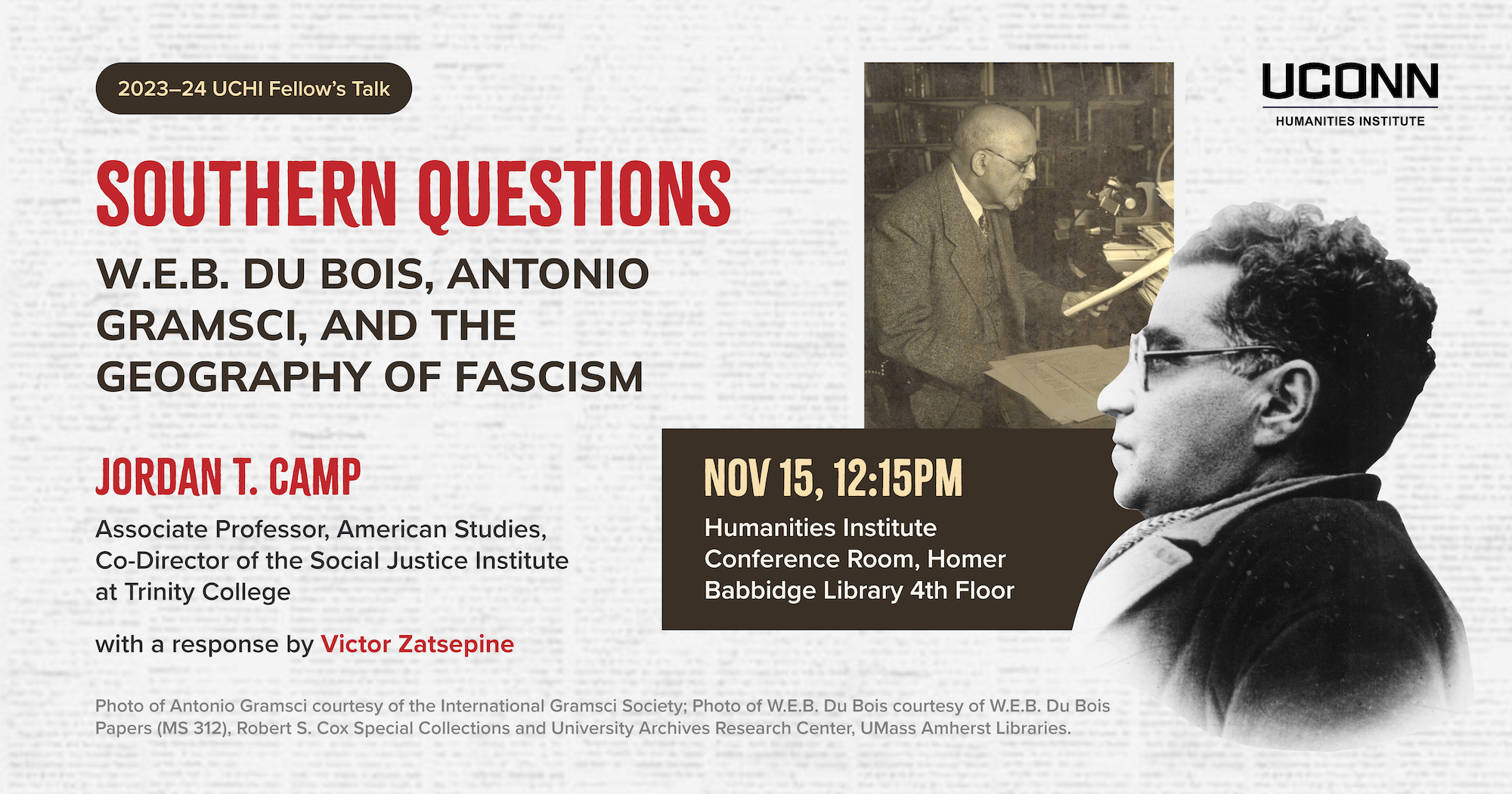Southern Questions: W.E.B. Du Bois, Antonio Gramsci, and the Geography of Fascism
Jordan T. Camp (Associate Professor, American Studies, Trinity College)
with a response by Victor Zatsepine (History, UConn)
Wednesday, November 15, 2023, 12:15pm, Humanities Institute Conference Room (HBL 4-209)
The event will also be livestreamed with automated captioning.
In this talk, Jordan T. Camp establishes a link between W.E.B. Du Bois and Antonio Gramsci through their respective approaches to the “southern question.” Drawing on Du Bois’ insights about the overthrow of Reconstruction and fascism in the United States and Antonio Gramsci’s writing about the emergence of fascism in post-World War I Italy, Camp traces an alternative geography of fascism and an alternate trajectory of anti-fascist political theory. He demonstrates how both theorists deployed symbolic, geographic, and ideological representations of “the South” in their writings. He further illuminates how they both treated the “southern question” relationally and illustrate the need for comparisons between racist and fascist nationalisms in different historical-geographical contexts. In linking Du Bois and Gramsci, Camp illustrates their ongoing relevance for understanding reactionary populist appeals to racism, nationalism, and xenophobia. In doing so, he suggests how their writing can be “translated” in order to confront the southern question in our own time.
Jordan T. Camp is an Associate Professor of American Studies and founding Co-Director of the Social Justice Institute at Trinity College, and a Visiting Fellow in the UConn Humanities Institute. He is the author of Incarcerating the Crisis: Freedom Struggles and the Rise of the Neoliberal State (University of California Press, 2016); co-editor (with Christina Heatherton) of Policing the Planet: Why the Policing Crisis Led to Black Lives Matter (Verso, 2016); and co-editor (with Laura Pulido) of the late Clyde Woods’ Development Drowned and Reborn: The Blues and Bourbon Restorations in Post-Katrina New Orleans (University of Georgia Press, 2017). He is the co-host and co-producer of the Conjuncture podcast and web series. He is currently working on a new book entitled, The Southern Question.
Victor Zatsepine is an associate professor appointed jointly to the Department of History and the Asian and Asian American Studies Institute at UConn. His research is focused on the history of modern China, the Russian Far East, and Northeast Asian frontier lands. He embraces transnational and trans-regional approaches to examine the movement of people, ideas, and goods across borders. After the publication of Beyond the Amur: Frontier Encounters Between China and Russia, 1850–1930 (UBC Press, 2017), he has continued research on East Asian frontiers, regionalism, border towns, the Chinese and Russian diaspora, migration and Western Imperialism. Over the past decade he has presented his research at major international conferences and workshops and in published articles.
Access note
If you require accommodation to attend this event, please contact us at uchi@uconn.edu or by phone (860) 486-9057. We can request ASL interpretation, computer-assisted real time transcription, and other accommodations offered by the Center for Students with Disabilities.


